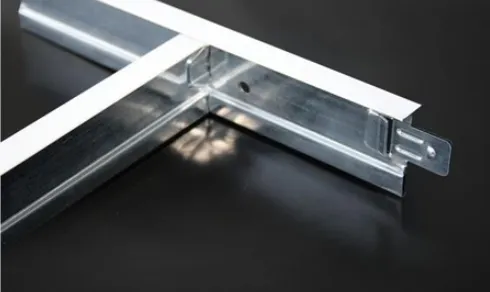- Afrikaans
- Albanian
- Amharic
- Arabic
- Armenian
- Azerbaijani
- Basque
- Belarusian
- Bengali
- Bosnian
- Bulgarian
- Catalan
- Cebuano
- Corsican
- Croatian
- Czech
- Danish
- Dutch
- English
- Esperanto
- Estonian
- French
- German
- Greek
- Hindi
- Indonesian
- irish
- Italian
- Japanese
- Korean
- Lao
- Malay
- Myanmar
- Norwegian
- Norwegian
- Polish
- Portuguese
- Romanian
- Russian
- Serbian
- Spanish
- Swedish
- Thai
- Turkish
- Ukrainian
- Uzbek
- Vietnamese
10月 . 18, 2024 09:02 Back to list
Exploring the Benefits of PVC Gypsum for Modern Construction and Design
The Versatility of PVC Gypsum A Comprehensive Overview
In the realm of modern construction materials, the combination of PVC (polyvinyl chloride) and gypsum has emerged as a popular choice due to its unique properties and numerous applications. PVC gypsum boards seamlessly integrate the advantages of PVC's durability and flexibility with the fire-resistant and sound-insulating characteristics of gypsum. This article explores the benefits, applications, and future potential of PVC gypsum in construction and interior design.
Understanding PVC Gypsum
PVC gypsum is essentially a composite material made from a gypsum core encased in a layer of PVC. Gypsum, a mineral known for its softness and fire-resistant qualities, is an ideal base material for a variety of applications. When combined with PVC, it enhances the overall performance, leading to a lightweight, yet sturdy product that meets the demands of modern architecture.
Benefits of PVC Gypsum
1. Durability One of the standout features of PVC gypsum is its excellent durability. The PVC layer provides resistance to moisture and mold, making it particularly suitable for high-humidity areas such as bathrooms and kitchens. This quality significantly extends the lifespan of the boards compared to traditional gypsum boards, which can deteriorate in damp conditions.
2. Lightweight and Easy Installation PVC gypsum boards are lighter than many other wall materials, which simplifies transportation and handling. Additionally, their lightweight nature allows for quicker installation, reducing labor costs and project timelines. This efficiency is a significant advantage for contractors and builders.
3. Aesthetic Versatility Available in various colors, textures, and finishes, PVC gypsum offers great aesthetic flexibility. It can easily complement various design themes, from contemporary to traditional interiors. The smooth surface can also be painted or printed upon, offering additional customization options for interior spaces.
4. Fire Resistance The gypsum core provides inherent fire-resistant properties, making PVC gypsum boards compliant with safety regulations in building construction. This characteristic is crucial in creating safer environments, particularly in commercial and public spaces.
pvc gypsum

5. Sound Insulation PVC gypsum is effective in sound insulation, making it an ideal choice for residential and commercial applications where noise reduction is desired. It helps create quieter environments in offices, schools, and homes, enhancing comfort for occupants.
Applications of PVC Gypsum
PVC gypsum is widely used in various applications, including residential buildings, commercial spaces, and industrial facilities. Key uses include
- Interior Wall Cladding Its lightweight nature and aesthetic appeal make it a popular choice for interior wall cladding, offering a stylish finish while improving insulation.
- Ceilings PVC gypsum can be used in suspended ceiling systems, providing a sleek look while maintaining sound insulation properties.
- Partitions and Dividers The molding properties of PVC gypsum allow for the creation of bespoke partition walls that can define spaces while ensuring privacy and sound reduction.
Future Potential
As the construction industry increasingly prioritizes sustainability and efficiency, PVC gypsum is well-positioned for continued growth. Its long lifespan, coupled with its recyclable properties, aligns with environmental goals. Additionally, advancements in material science may lead to further enhancements in the performance of PVC gypsum, opening new doors for innovation in the architecture and design sectors.
In conclusion, PVC gypsum represents a significant advancement in building materials, marrying durability with aesthetic versatility. As architects and builders seek innovative solutions to modern challenges, the applications and benefits of PVC gypsum are likely to expand, solidifying its role in the future of construction.
-
Transform Interiors with PVC Gypsum Ceiling: A Stylish, Durable, and Moisture-Resistant SolutionNewsMay.19,2025
-
The Smart Interior Upgrade: Discover the Durability and Versatility of Gypsum Ceiling Access Panel SolutionsNewsMay.19,2025
-
The Smart Choice for Interior Design: Discover the Value of PVC Gypsum Ceiling SolutionsNewsMay.19,2025
-
Mineral Fiber Ceiling Tiles: The Smart Blend of Performance and AestheticsNewsMay.19,2025
-
Mineral Fiber Ceiling Tiles: The Superior Choice Over Gypsum for Sound and Fire SafetyNewsMay.19,2025
-
Mineral Fiber Ceiling Tiles: Eco-Friendly Strength and Style for Every CeilingNewsMay.19,2025







